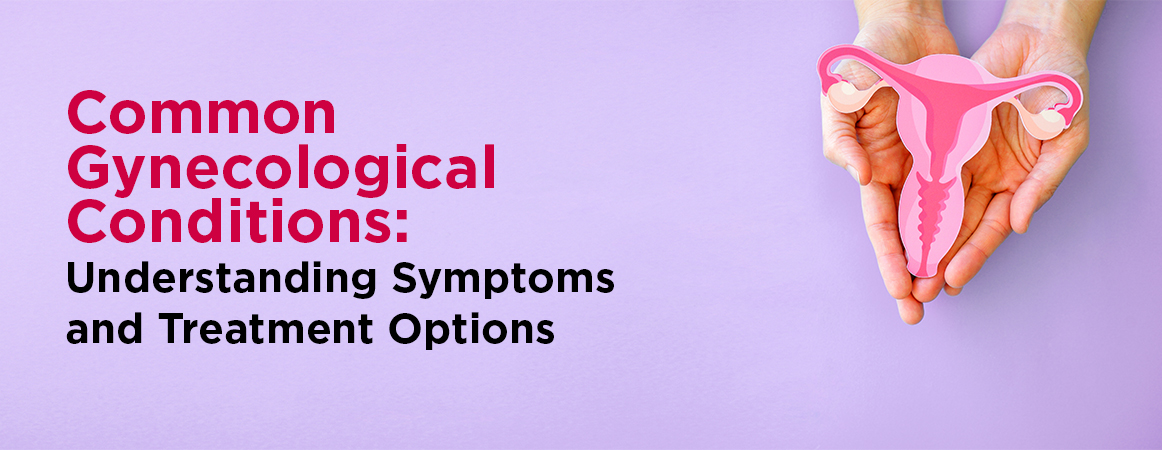Common Gynecological Conditions: Understanding Symptoms and Treatment Options
Gynecological conditions can significantly impact a woman’s quality of life. Whether it’s menstrual irregularities, pelvic pain, or reproductive health concerns, understanding the symptoms and treatment options for common gynecological conditions is essential. In this article, we will explore some of the most prevalent gynecological conditions, shed light on their symptoms, and discuss various treatment options available.
If you’re in search of expert guidance and top-notch care for common gynecological conditions, look no further than the gynecologist specialists in Karachi at the MMI Hospital. Understanding the symptoms and treatment options for these conditions is crucial for women’s health. Discover the expertise of the top gynecologists in Karachi who can provide comprehensive care tailored to your needs.
1. Menstrual Irregularities
Causes of Menstrual Irregularities
Menstrual irregularities refer to any changes in the normal menstrual cycle, including changes in frequency, duration, or intensity of periods. Several factors can contribute to menstrual irregularities, such as hormonal imbalances, stress, excessive exercise, polycystic ovary syndrome (PCOS), thyroid disorders, and more.
Symptoms
The symptoms of menstrual irregularities can vary from woman to woman but may include irregular periods, heavy or prolonged bleeding, missed periods, or severe menstrual cramps.
Treatment Options
The gynecologists in Karachi offer specialized care for menstrual irregularities, addressing the root cause to provide appropriate treatment options. Birth control tablets and other hormonal contraceptives can help regulate the menstrual cycle. In cases of PCOS, lifestyle modifications, weight management, and medications may be recommended. If a hormonal imbalance or other medical condition is causing the irregularities, the healthcare provider may prescribe appropriate treatments.
2. Pelvic Inflammatory Disease (PID)
Causes of Pelvic Inflammatory Disease
This is a female reproductive organ infection caused by sexually transmitted diseases (STIs) such as chlamydia or gonorrhea. It occurs when bacteria from the vagina or cervix travel to the upper reproductive tract, leading to inflammation and potential long-term complications.
Symptoms
The symptoms of PID can range from mild to severe and may include lower abdominal pain, unusual vaginal discharge, painful intercourse, fever, and fatigue. However, some women may experience no symptoms at all.
Treatment Options
Prompt diagnosis and treatment are critical for avoiding future complications. Antibiotics are often recommended to treat the infection. It is critical to finish the entire course of antibiotics as directed by your doctor. In severe cases or if an abscess forms, surgery may be necessary.
3. Endometriosis
Causes of Endometriosis
This is a condition in which the tissue lining the uterus grows outside the uterus, commonly on the ovaries, fallopian tubes, or pelvic lining. The exact cause of endometriosis is unknown, but factors like hormonal imbalances and genetic predisposition may play a role.
Symptoms
Common symptoms of endometriosis include pelvic pain, heavy or irregular periods, pain during intercourse, and fertility issues. Some women may also experience fatigue, bloating, and bowel or urinary problems.
Treatment Options
Treatment for endometriosis aims to manage symptoms and improve fertility. Pain medications, hormonal therapies, and surgical interventions are commonly used at Memon Medical Institute Hospital, the best gynecologist hospital in Karachi. In severe cases, a hysterectomy may be recommended, but this is usually a last resort.
4. Uterine Fibroids
Causes of Uterine fibroids
These are noncancerous growths that develop in or on the uterus. The exact cause of fibroids is unclear, but hormonal imbalances, genetics, and other factors may contribute to their development.
Symptoms
Many women with uterine fibroids do not experience any symptoms, but when they do, they may include heavy or prolonged menstrual bleeding, pelvic pain or pressure, frequent urination, and difficulty conceiving.
Treatment Options
The severity of the symptoms determines the treatment for uterine fibroids. Options range from medication to surgical interventions like myomectomy (removal of fibroids) or hysterectomy (removal of the uterus).
Conclusion
Understanding the symptoms and treatment options for common gynecological conditions is crucial for women’s health and well-being. Menstrual irregularities, pelvic inflammatory disease, endometriosis, and uterine fibroids are just a few examples of the conditions women may face.
If you experience any abnormal symptoms or concerns, it’s important to consult a gynecologist for proper diagnosis and guidance. You can find some of the best gynecologists in Karachi at MMI Hospital. With timely intervention and appropriate treatment, many gynecological conditions can be effectively managed, leading to improved quality of life for women everywhere.


